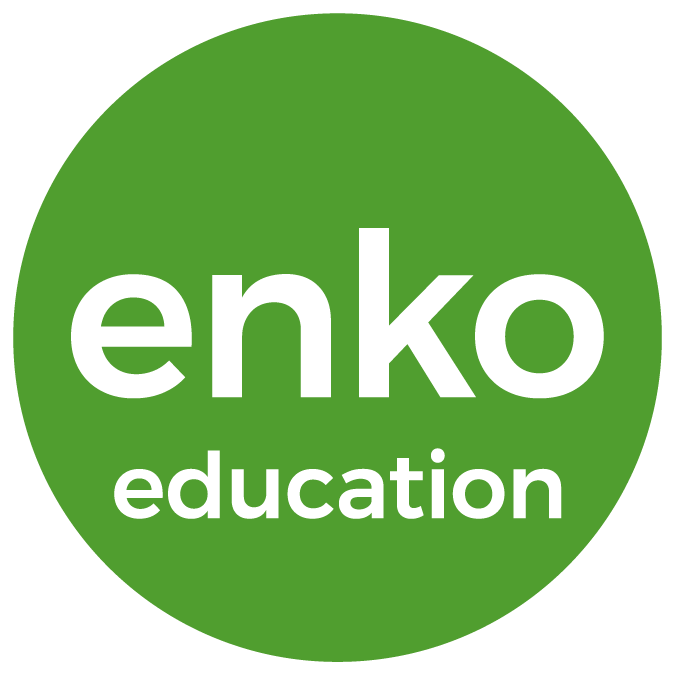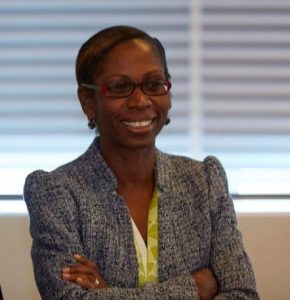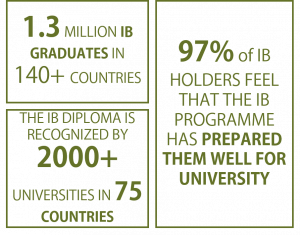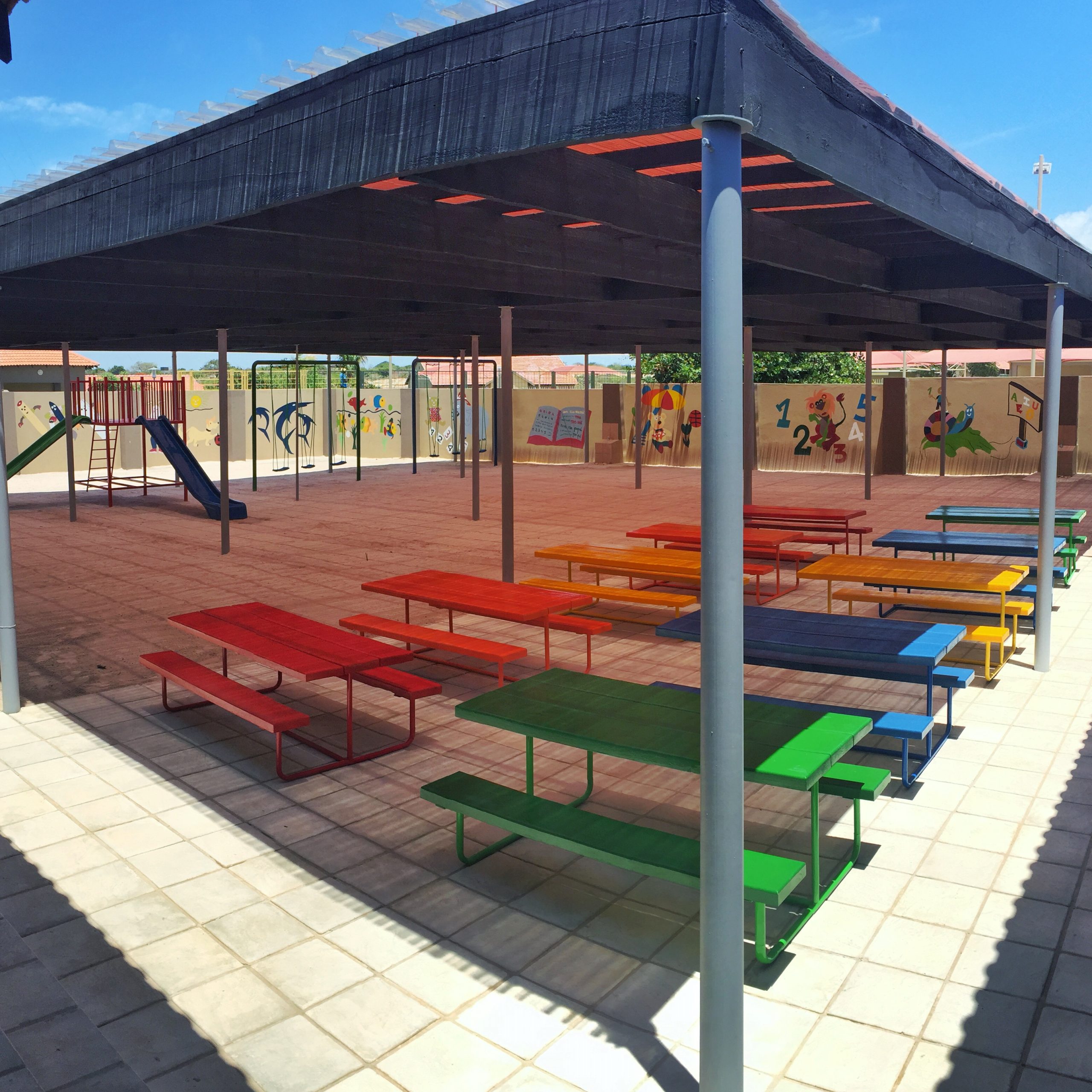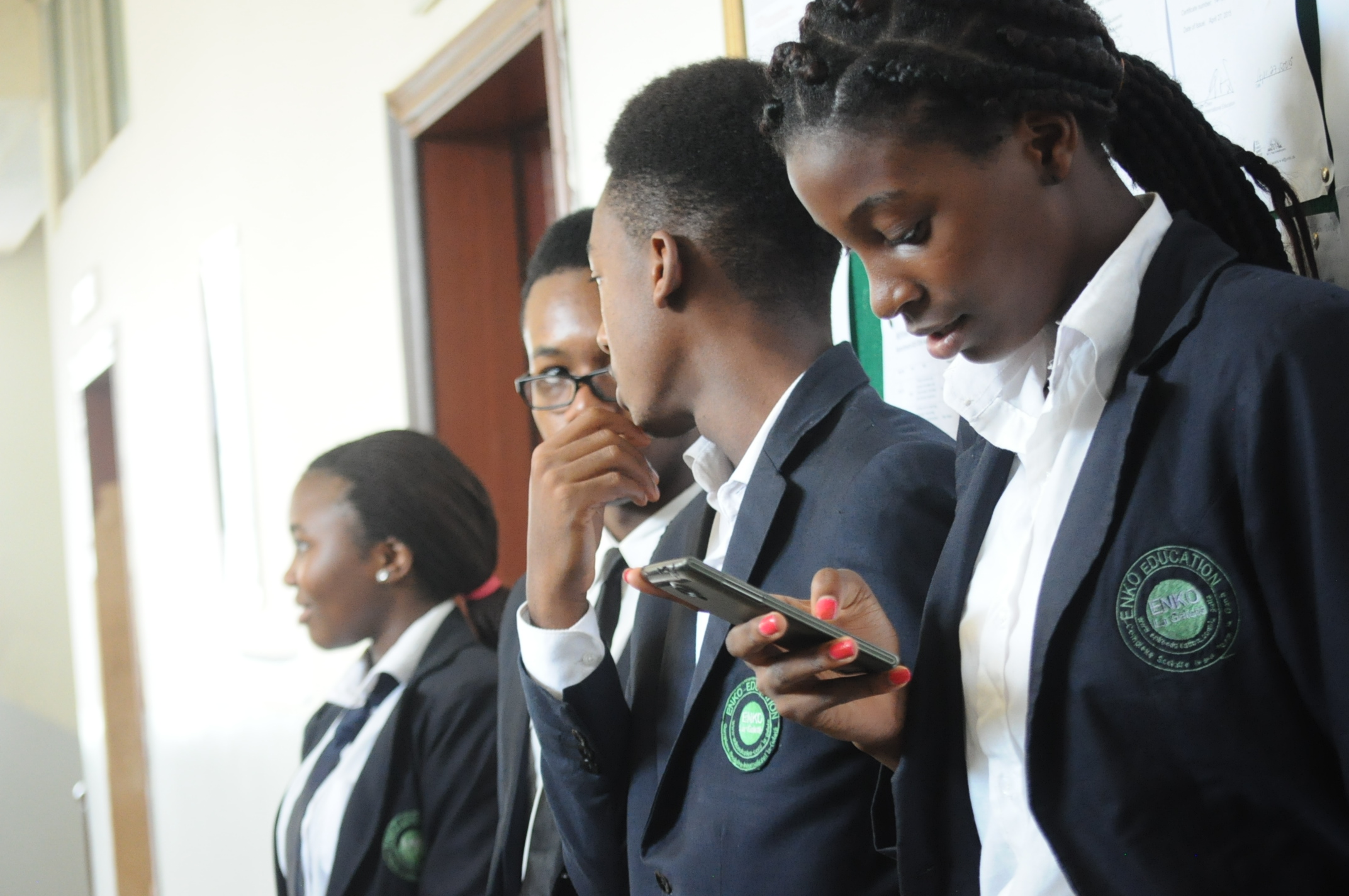Offering the best opportunities to 21st century students with the International Baccalaureate programme
Interview with Adzo Ashie, Africa Regional Development Manager IB Global Centre
Adzo Ashie knows the IB programme very well, and understandably so, as she was one of the first Ghanaian students to obtain an IB Diploma in Accra, in the mid-1990s. She was among the pioneers, forming and developing themselves along with their school, with no predecessors to show them the way. We talked to her about her career so far, then discussed the specific characteristics of an IB education.
You were one of the first secondary school students to obtain an IB Diploma in Ghana. What do you remember most about this time?
It was a very stimulating period, like travelling to an unexplored country with no map. For the students as well as the teachers, it was all about discovering what the programme was all about. This was a good thing, in a way. It taught us to understand ourselves, as individuals; it taught us the value of collaboration and working together; and it taught us how to ask for help when we didn’t know something. It was a very formative experience from all perspectives. One of my strongest memories from this time is the CAS (Creativity Activity Service) project. This is compulsory in all IB schools and requires the student not only to focus on academic success but to go outside the classroom to get involved in the life of their community. We spent a weekend in an orphanage helping others: cleaning the premises, helping the children with their chores, etc. It was an unforgettable experience. For me, this was a very important part of my personal journey. I had to go beyond the academic domain and develop all the other aspects of my personality. It’s also very important for children to understand their community so that they are empowered to make a difference. CAS makes this possible for them.
Can you tell me about your career after the Baccalaureate?
After IB I went to study at Mount Holyoke College in Massachusetts, in the USA. I gained my university degree there and taught there for several years before returning to Accra. I worked for seven years at the Ashehi University in Accra, during which time I was involved on a voluntary basis in developing the IB programme in Africa.
How did the IB programme prepare you for university life in the United States?
The IB and its requirements in terms of work taught me about managing my time. Over the two years of the diploma programme, you have to take six subjects, write an extended essay and devote some of your time to the CAS project. Preparing and writing the extended essay, which is a mini-thesis, develops your research and writing skills – these were invaluable during my years at university. The TOK (Theory of Knowledge) module, which develops critical analysis skills, was also very useful. A recent study shows, moreover, that universities place great store by the IB Diploma programme (IBDP) and that they consider our students to be better prepared than other students at the university.
When I arrived at university, managing my time wasn’t a huge problem for me. Finally, my IB education taught me how important it is to be involved in the social life of the university, in extra-curricular activities, student associations and societies, etc. The IB programme develops leadership skills, particularly in the non-academic areas of the programme. This gave me the confidence to take up leadership positions on campus; I was elected by my peers (students) to head up some associations.
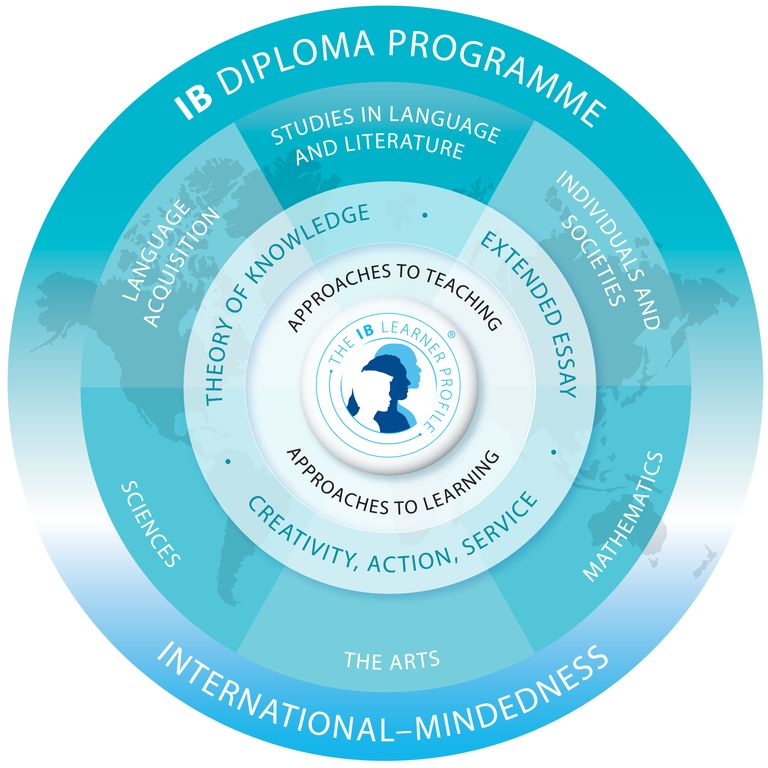 How did you come to work for the IB organisation?
How did you come to work for the IB organisation?
When I returned to Ghana, I became involved with the regional council of the IB, representing previous students. The idea was to increase knowledge about IB programmes and to develop the schools offering IB programmes in Africa. It’s important to maintain a dialogue with heads of education in the various countries and raise awareness of an IB education among parents and future students who are planning to register at schools offering the IB Diploma. Even though it is very widely recognised, this programme is one of the most closely guarded secrets. Its presence in Africa is important, as is the development of its role. When the IB presence in Africa became more significant, I was offered a role within the organisation as Development Manager for the Africa region. Today, there are 80 IB schools in 26 African countries.
Can you tell me a bit more about the history of the IB programme?
The IB was created in 1968, based on the theories of some of the most respected thought leaders in education, such as John Dewey and Jean Piaget. And, when you think about it, it was a very innovative approach. The basic concepts at the root of the IB, and on which it is still based today, were those of an internationally recognised diploma and a programme that would contribute to the promotion of inter-cultural understanding. What characterises an IB education is this desire to consider the student as a whole person, not just to prepare them as effectively as possible for exams and university. We have to help them develop attitudes and skills that will enable them to face up to challenges in their personal lives as well as their professional lives and to become better citizens. It’s a very well-rounded education that addresses all the aspects of the student as a person. At the beginning, it was mainly the children of diplomats and expatriates who were enrolled in the IB programme. It allowed these students to follow the same curriculum regardless of where their parents were assigned, and to be able to apply to the best universities. With globalisation and the internationalisation of the curriculum, the IB (and particularly its diploma programme) is now intended for anyone who wants to continue their studies. The thoroughness of the course and the fact that it is recognised worldwide make it a programme that prepares students for the requirements and demands of university life. And the excellence of the IBDP is recognised by the most prestigious universities in the world.
How does an IB education differ from others?
The student profile offers an excellent summary of our education. It’s a question of helping the student to develop all these different aspects and to apply them during their studies, and in their future life. We want to develop highly principled, knowledgeable people who know how to communicate and take care of others. All these aspects are essential in today’s world. Children need knowledge, but they also need skills to enable them to navigate a route in a complex world and they need leadership abilities to help develop the continent. Our programmes encourage students worldwide to be active, to think about others and to keep developing their knowledge throughout their lives, not just during their years at school. We also teach them how important it is to understand other civilisations and other cultures.
If I had to sum up the IB education in just four points, they would be these: it is centred around the development of the students; it equips them with specific approaches to the acquisition and sharing of knowledge; it enables them to work in a global environment; and it offers them a wide-reaching and well-balanced programme that is both conceptual and in touch with the reality of our world. It’s a programme that is very well-adapted to the African context. Africa really needs to offer a high-quality education, to develop and prepare well-rounded leaders who are capable of critical thinking and who will make a difference in their communities.
What makes our proposition unique is that it has been developed around rigorous academic and individual standards. The IB programmes stimulate the students so that they grow up into adults who want to continue learning with enthusiasm and to promote understanding and empathy. The IB community shares the common conviction that education can help to build a better world.
To illustrate how our education proposition is different from others, I would like to tell you about three specific elements of the curriculum that demonstrate our original approach.
Right from the start, the IB education offered a course in the Theory of Knowledge (TOK), which gives children an understanding of how knowledge is formed in different disciplines and how the different disciplines can explain the same phenomena. This course whets their appetite for knowledge and hones their critical thinking skills.
The CAS (Creativity, Activity, Service) module that I spoke about earlier is all about gaining experience outside the academic programme.
Finally, the 4000-word extended essay, which every student on the Diploma Programme (the last two years of secondary school) is required to complete, enables the students to carry out their first research project on an area of interest for them personally, and teaches them to express their ideas clearly and intelligently.
What are the specific characteristics of IB teachers?
The teachers are recruited according to the standards applicable in each country where we have a presence. What sets our teachers apart is that they are extremely motivated, and they have a positive attitude and a strong desire to learn and to share knowledge. We provide ongoing training opportunities for them, both in terms of classroom training, in their schools or at annual conferences, and online training. There are multiple ways in which we can support the schools and the quality of the IB education. The world is changing so quickly that we cannot be satisfied any more with one initial teacher-training course for everyone; we have to be able to adapt the training and education offered.
I really like what one of our teachers said to me at an IB conference. Imagine that you go into hospital for surgery, and you were offered the same technology for the operation as your grandfather was offered fifty years ago. Would you trust the surgeon? No, because you know very well that since then, knowledge has evolved and we have far more successful and less invasive techniques available to us. It’s just the same in education. We must prepare our students for the world of tomorrow. According to a recent survey by the World Economic Forum, 65% of children currently in primary school will have jobs that have not yet been invented. With that in mind, what education should we be offering to students who will be doing jobs that don’t yet exist? This is the IB proposition – we need to help our children to develop skills that will be useful to them as they move on into the future. IB teachers are creative and innovative, they have a strong desire to learn and to adapt to the latest research on best practices in teaching and learning, and this is why they are able to inspire students and pass on their own passion for knowledge.
Why do parents choose to enrol their children in IB schools?
When we talk to IB parents, what really comes across is their desire to see their children succeed. They want to give them a top-quality, international education. It’s the parents who want more for their children than what is currently offered by education systems, who are prepared to invest in their education.
There is more information on the IB website:
https://www.ibo.org/information-for-parents/https://www.ibo.org/fr/information-for-parents/
Is there a typical profile for an IB student?
No, not really. The students who do best in our schools are those who love to learn, who are engaged, curious, active in their approach to learning. All children have these characteristics, from the start. I love what Yates says: “Educating is not filling a bucket (with knowledge) but lighting a fire.” Our students, just like our teachers, want to light that fire and keep it burning. We also want to develop an inclusive education system and some of our schools welcome students with different needs. The aim of an IB education is to help children reach their potential, whatever that may be.
Some personal histories of IB students:
https://ibo.org/testimonials/diploma-programme-dp/akua-kwakwa-tema-ghana/
https://ibo.org/testimonials/diploma-programme-dp/anne-osir-nairobi-kenya/
https://ibo.org/testimonials/diploma-programme-dp/kavan-shah-nairobi-kenya/
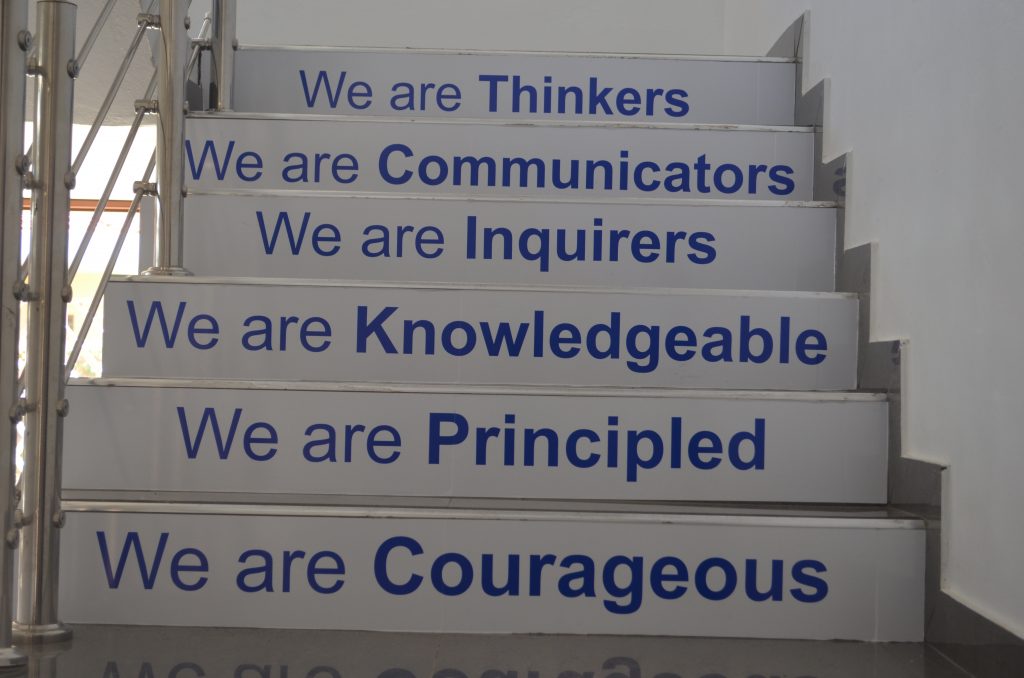
In IB schools, how do you achieve the objective of an international education without uprooting the students from their native culture?
The attributes of our students, around which the IB programmes have been developed, are universal values. Even so, we never forget their native cultures. Our objective is to encourage the children to think at a local level but to act on a global scale. Their mother tongue is among the languages taught, particularly in the primary years. We want our students to have a good awareness of what is happening locally, and a good understanding of how they will fit into the world. Personally, when I was following the Diploma Programme, I chose to do my extended essay on African literature and I read a huge number of African novels.
What do you think of Enko Education?
From the beginning, since Enko Education was established, I have been in contact with the founders and I have seen what they are doing. I have a huge respect for their passion for education and their involvement in it. I am aware of the fact that they want to offer a top-quality education at affordable prices. And I really admire them for that!
